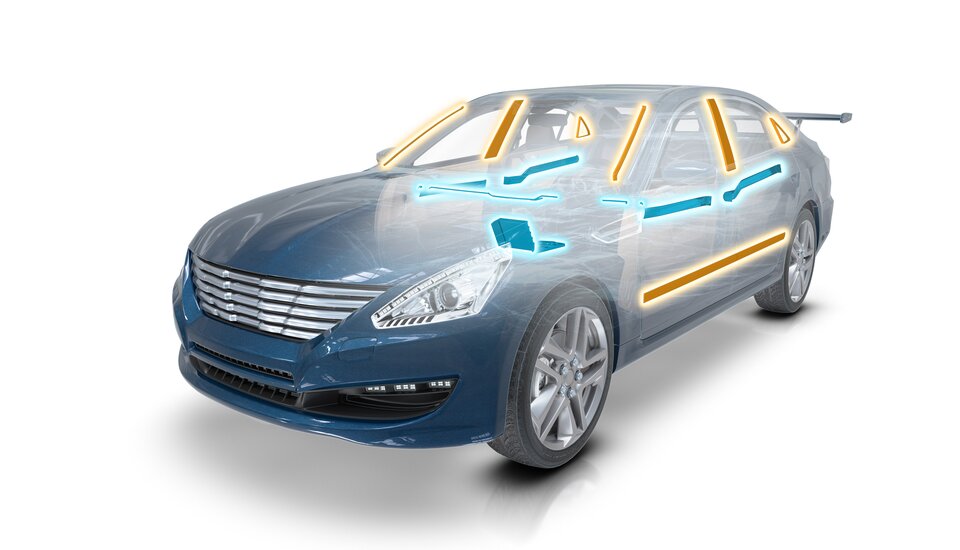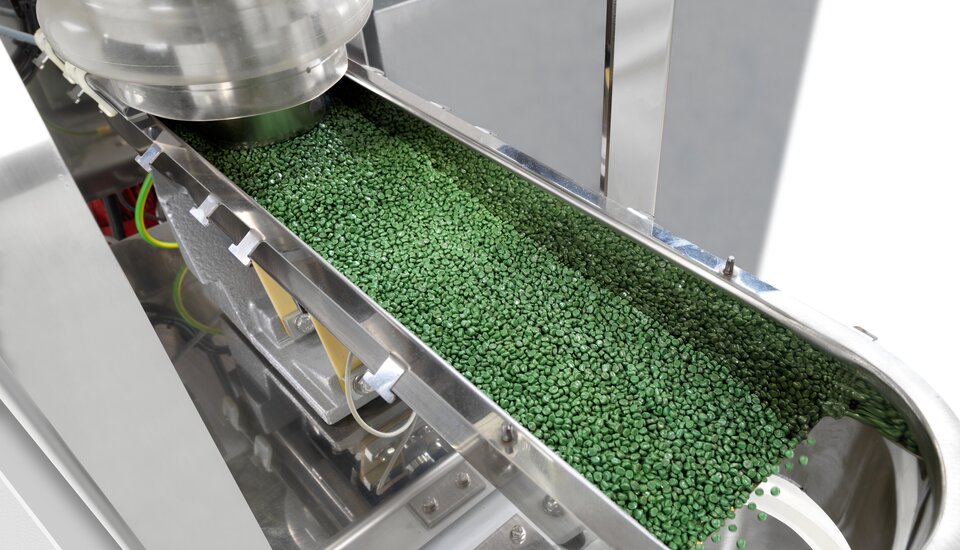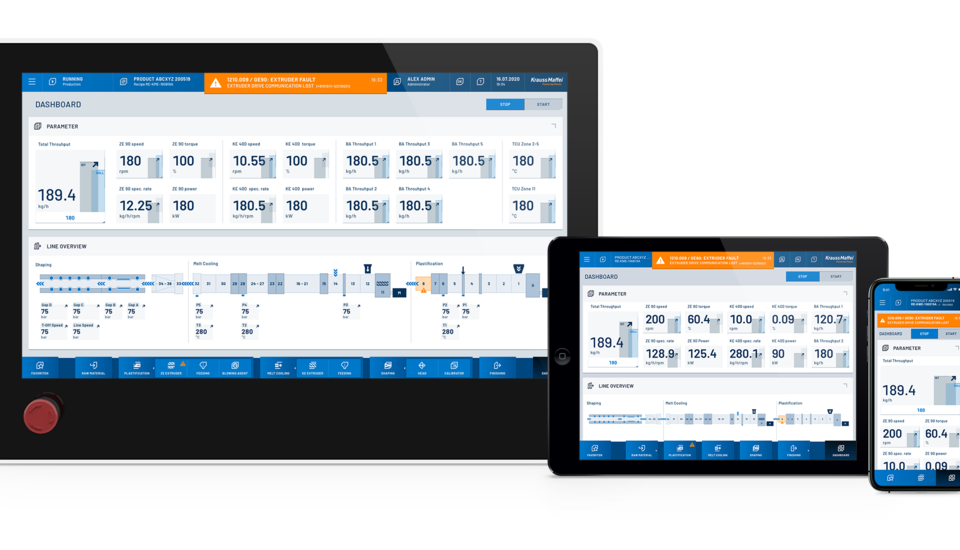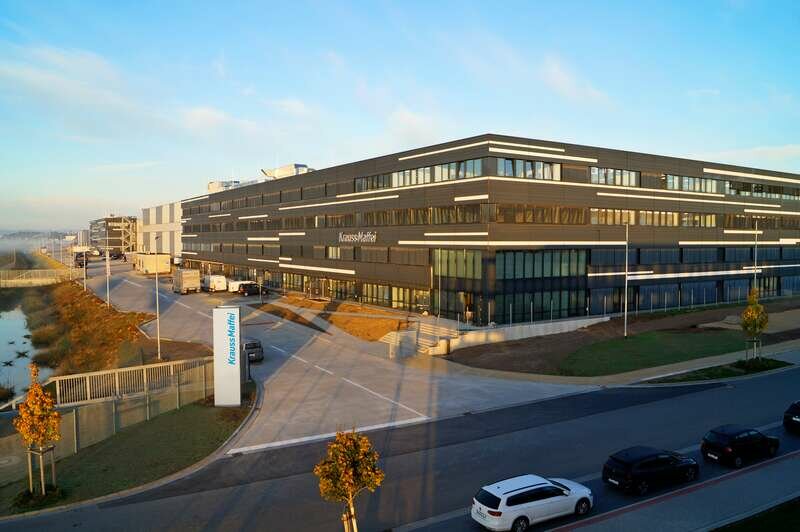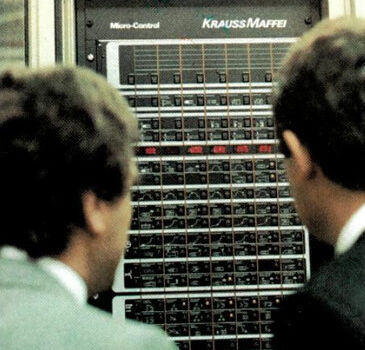
Trendgineering
New plant concept for new types of flooring
| Andreas Weseler
Polyolefin flooring replaces polyvinyl chloride
KraussMaffei's Extrusion business unit is presenting a system concept for the production of rigid and elastic flooring solutions based on polypropylene (PP). These floor coverings, which are classified as chlorine-free, are physiologically harmless, odorless and can contribute to cost optimization due to their lower density, compared to halogen-containing materials such as PVC.
"Polyolefin-based floor coverings offer a number of advantages, which is why they are becoming increasingly popular. With our development project, we are investing in this growing market."Janina Roesch, Product & Application Owner Flat and Foam, KraussMaffei




Economical production of PP based floor coverings
For the cost-effective production of new PP floor coverings, KraussMaffei uses a ZE BluePower twin-screw extruder in the sheet extrusion line, which offers significant advantages. On the one hand, the large free volume and high specific torque of this series enable high output rates and a large process window for optimum end product quality, even with varying input material. Second, the ZE BluePower is ideal for inline compounding, eliminating a potentially costly step. To achieve efficient inline compounding, several metering stations and side feeders are arranged along the processing unit to feed solid and liquid additives and thus achieve the highest filling levels in the end product.
Formulation development in cooperation with ExxonMobil
For this technology, the plant configuration is not the only important factor, as the material formulation can influence the plant design to a large extent. To support the development process, formulations are developed in cooperation with ExxonMobil. Here, innovations are enabled by Vistamaxx™ polymers, highly flexible PP-based elastomers that can tolerate high levels of fillers and promote the incorporation of recycled material while maintaining impact strength and top layer adhesion. "We are leveraging our technological expertise and polymer portfolio, including a wide range of ExxonMobil™ polyolefin elastomers, such as Vistamaxx™ performance polymers, to develop innovative, customized flooring formulations that can be efficiently inspected and tested on KraussMaffei's pilot plant," said Gertrud Masure, Market Development Manager, EMEAF, Polypropylene, Vistamaxx™ and Adhesion, ExxonMobil. "Collaboration in the development of flooring formulations will help flooring manufacturers bring their products to market faster."




Laboratory facility enables customized solutions for flooring producers
"Our pilot plant offers unprecedented flexibility in terms of flooring dimensions and formulations used," Roesch said. "The configuration of the plant is suitable for thin, highly flexible coverings with a thickness of 2.5 mm as well as for thick, rigid boards with a thickness of up to 6 mm. It also enables a wide range of formulations, as these floor coverings can be made from virgin or recycled polypropylene, and their mechanical properties can be optimized by adding various fillers such as calcium carbonate or talc, and by incorporating fibers or polymer modifiers."
The main key to this flexibility is the ability to compound inline in combination with the PlanetCalender with adjustable roll positions to adapt the system to a wide range of product thicknesses and material flexibilities. The actual commercial line is designed based on the optimal Yankee dryer configuration for the desired product, as determined by pilot line trials.In both the production line and pilot plant, the extruded PP sheets can either be laminated with a decorative and anti-wear film in an inline process or printed with a design in an offline process and then sealed. The final processing of the sheets takes place in the downstream cooling section, which helps to optimize critical parameters such as dimensional accuracy and flatness and rounds off the overall system with systems for trimming and cutting to length. In both the production line and the pilot plant, the extruded PP sheets can either be laminated with a decorative and wear-resistant film in an inline process or printed with a design in an offline process and then sealed. The final processing of the sheets takes place in the downstream cooling section, which helps to optimize critical parameters such as dimensional accuracy and flatness and rounds off the overall plant with systems for trimming and cutting to length.
Unique chance for innovations
With the development line, KraussMaffei has developed a basic formulation that can be tailored to the specific requirements of floor coverings by leveraging ExxonMobil's polymer expertise and in close coordination with the customer. This unique combination of development capabilities and collaboration with leading experts, enables customers to efficiently develop and test premium formulations to succeed in this fast growing flooring segment.
"As we expect PP flooring to grow in popularity in the coming years, we are sure to provide manufacturers with an innovative platform to develop their future flooring solutions."Janina Roesch, Product & Application Owner Flat and Foam, KraussMaffei
